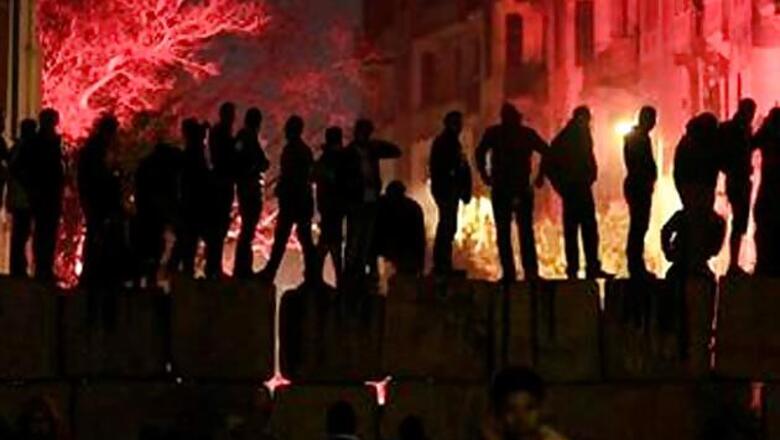
views
Cairo: Anger over a deadly soccer riot erupted in fresh clashes that injured nearly 400 people on Thursday as security forces fired tear gas at fans and other protesters who accused police of failing to stop the violence.
The bloodshed - which comes as security has been steadily deteriorating - threatened to plunge the country into a new crisis nearly a year after a popular uprising forced former leader Hosni Mubarak to step down.
A network of rabid soccer fans known as Ultras vowed vengeance, accusing the police of intentionally letting rivals attack them after Wednesday's Egyptian league match in the seaside city of Port Said because they have been at the forefront of protests over the past year, first against Mubarak and now the military that assumed power after his Februay 11 ouster.
The riot in Port Said began when local Al-Masry fans stormed the field following a rare 3-1 win against Cairo-based Al-Ahly, one of Egypt's most popular clubs, and began attacking their rivals, forcing hundreds in to a narrow stadium exit, only to be crushed against a locked gate.
The fighting was rooted in a long-standing, deep rivalry between the two teams, but it rapidly took on a political tone as lawmakers and the public widely denounced the police for standing by as the violence escalated. Some Al-Ahly fans said they had hung banners making fun of Al-Masry supporters in Port Said before the game, apparently provoking the local fans to riot despite their victory.
Tensions spread to Cairo as many of the dead were brought home for burial and the wounded joined the protests, some in tears, clearly in distraught for the loss of friends.
The police force, which has been at the heart of the Egyptian grievances leading to the uprising, has remained a source of tension after Mubarak's ouster. The police have been accused of continuing to use heavy-handed tactics and resisting reform. But they also found themselves at times unable to manage crowds, fearing they would be vilified.
What began Thursday as a peaceful march from the Al-Ahly headquarters in Cairo descended into fury as more than 10,000 protesters reached the area outside the Interior Ministry building near Tahrir Square, the epicenter of last year's popular uprising that ousted Mubarak.
Adel Adawi, a health ministry official, was quoted by the state-run news agency as saying 388 protesters were injured outside the interior ministry, most from tear gas inhalation as well as bruises and broken bones from rocks that were thrown.
The protesters raised flags of Al-Ahly and Zamalek, another top team with its own Ultras group, and Egyptian flags. Some held black banners reading: "Mourning."
Chants calling for the execution of the country's military rulers, led by Mubarak's defense minister of two decades Field Marshal Hussein Tantawi, rang through the area, as the protesters marched from the square to the barricaded area surrounding the Interior Ministry.
"We dreamed of change. They fooled us and brought us a field marshal instead," the protesters chanted. Some appealed to the army to side with the people and ask the top generals to quit. "Our army must choose between the military council and the revolutionaries," they chanted.
Riot police guarding the area were separated from the protesters by barricades of concrete blocs and barbed wire that were erected around the ministry in November, when clashes between the police and protesters then left more than 40 people dead. But tensions rose as protesters advanced toward them, cursing and removing some of the barriers.
They also raised their shoes in the air and hurled stones. Security forces responded with heavy tear gas, sending demonstrators running, with some passing out and falling to the ground.
Protesters set tires on fire, sending black smoke in the air. Motorcycle drivers ferried some of those wounded from the site as ambulances were unable to get through. Egyptian state TV said 100 people had passed out from the tear gas.
A smaller group of protesters defiantly inched closer to the ministry and some were heard threatening to storm the building, but they were met with a new hail of tear gas. One young man, who climbed atop a traffic light waving a flag, was unmoved despite being enveloped in smoke.
Taha Mahfouz, a protester, managed to snatch riot gear from one of the security forces. He wore the helmet, and waved the club.
"We are only across the street from the ministry," Mahfouz said. "They can't protect their stuff. How can they protect the country?"
The Interior Ministry said in a statement the protesters had cut the barbed wire, and crossed over the concrete blocs to reach the roads leading to the headquarters. It urged the protesters "to listen to the sound of wisdom ... at these critical moments" to prevent the spread of chaos.
Several thousand protesters also marched on the main security headquarters in Suez, at the southern end of the Suez Canal, throwing firebombs at the building. One of those killed in Port Said was originally from the city. Police fired tear gas at the crowd, forcing protesters to scatter, but they later regrouped.
In Port Said, thousands of Al-Masry fans also rallied outside the local police headquarters trying to distance themselves from the bloody clashes and adding their voices to those blaming the military. Holding the Egyptian flag, demonstrators demanded to know why the police did not protect people in the stadium.
Security officials said 47 people were arrested and being interrogated inside the police station.
Ultras who support Cairo's Al-Ahly and Zamalek clubs have long been bitter enemies of the police who wielded wide-ranging powers under Mubarak-era emergency law. The fans' anti-police songs, peppered with curses, usually go viral on the Internet, an expression of the hatred many Egyptians feel toward security forces.
Survivors and witnesses described people falling from the bleachers and other scenes of chaos after as fans from the local Al-Masry team in Port Said chased supporters of the visiting Al-Ahly club with knives, clubs and stones. Hundreds fled into the exit corridor, only to be crushed against a locked gate, their rivals attacking from behind.
In Cairo, the returning fans described stepping over dead bodies, seeing friends fall from the meters high stands. One fan said supporters of the rival team used knives and sharp tools to mark faces and bodies of the dead, carving out the name of their city- which they considered insulted- on their bodies- as the police force mostly watched, or looked overwhelmed.
Thursday's clashes came on the one-year anniversary of one of the most violent days of the 18-day anti-Mubarak uprising- further fuelling the protesters anger. On Feb. 2 last year, in what became known as the "Battle of the Camel," Mubarak loyalists on camels and horses attacked protesters at Tahrir Square, leading to nearly two days of battles with rocks, firebombs and slabs of concrete. Ultras, along with members of the Muslim Brotherhood, were key in defending the square from the attackers.
Prime Minister Kamal el-Ganzouri, in an emergency parliamentary session, announced he had dissolved the Egyptian Soccer Federation's board and referred its members for questioning by prosecutors about the violence. He also said the governor of Port Said province and the area's police chief have resigned.
Several lawmakers said the lapse was intentional, aimed at stoking the country's insecurity since Mubarak's fall.
Parliament Speaker Saad el-Katatni, of the Muslim Brotherhood, accused security authorities of hesitating to act, putting "the revolution in danger."
"This is a complete crime," said Abbas Mekhimar, head of parliament's defense committee. "This is part of the scenario of fueling chaos against Egypt."












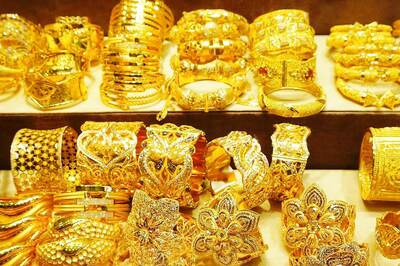

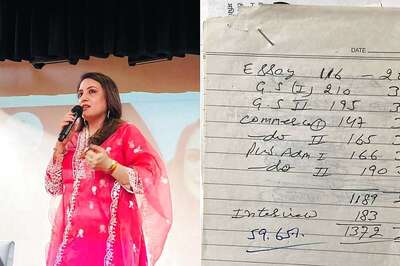

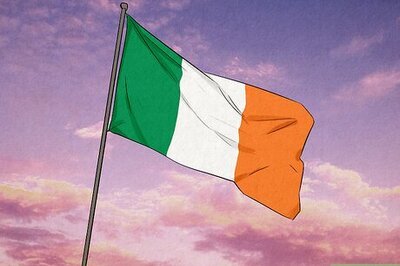
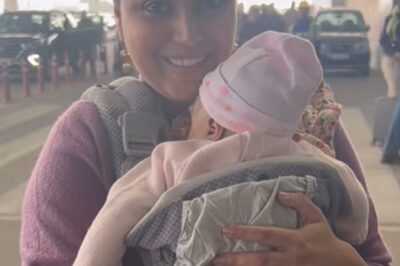

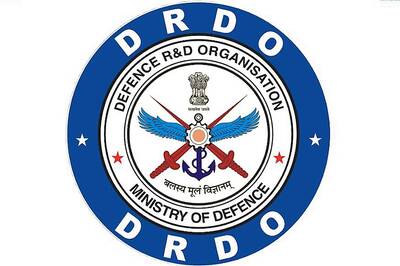
Comments
0 comment